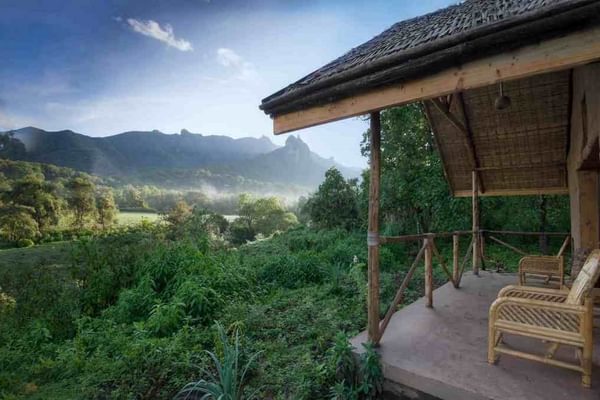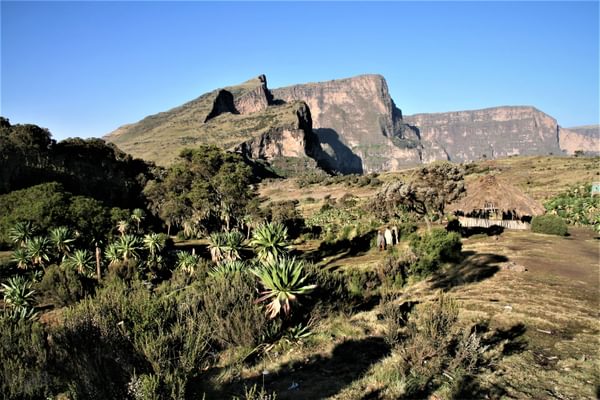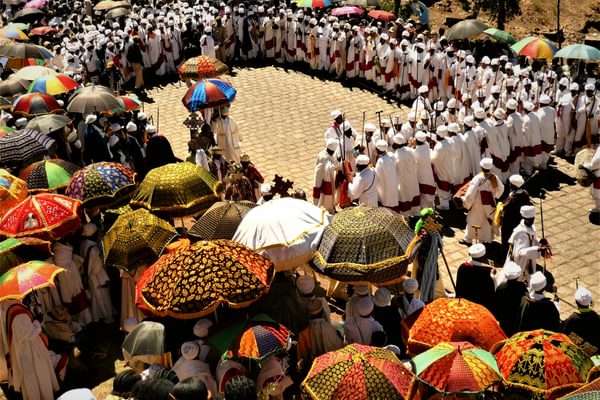Speak To Our Ethiopia Specialist Today
and start planning your tailor-made holiday

Ben
Travel Expert

Can't decide where to go? Why not take a look at our special offers for inspiration.

A diverse land brimming with superb safaris, pristine sandy beaches, towering snow-capped peaks and tropical underwater worlds is just waiting to welcome you

Australia offers vibrant cities, diverse landscapes, and iconic wonders like the Great Barrier Reef. New Zealand adds dramatic scenery, Maori culture, and relaxed charm. Together, they promise nature, adventure, culture, and warm hospitality.

If you're dreaming of an island getaway, look no further than the Caribbean with its gorgeous soft sand beaches and lively, diverse cultures.
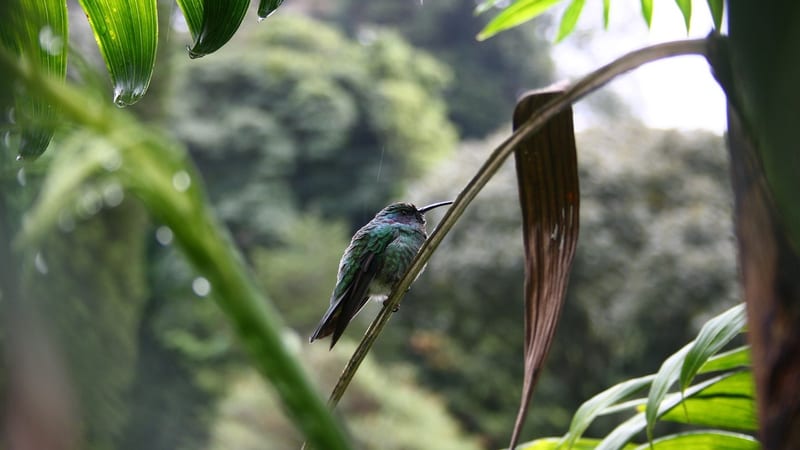
Head to the amazing destination that is Central America, full of the knowledge of ancient civilizations, incredible mountains, and beautiful beaches.

Discover vibrant cultures, pristine beaches, and tantalizing flavours in the captivating travel haven that is East and Southeast Asia

Embark on a journey through the vibrant tapestry of India, Sri Lanka, and Bhutan—where ancient temples, lush tea plantations, and soaring Himalayan peaks promise unforgettable moments at every turn.
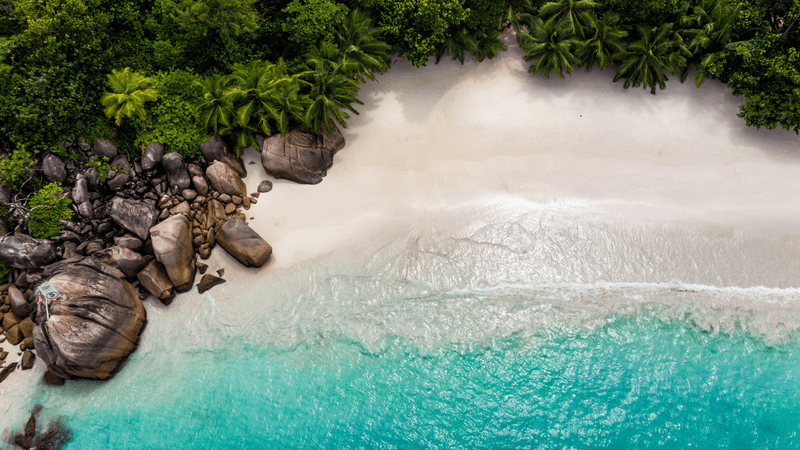
Picture yourself basking on sun-kissed beaches, sipping tropical cocktails beneath swaying palms —where crystal-clear lagoons and luxurious resorts cater to your every desire.

Experience world-class hospitality, mouthwatering cuisines, and the region’s deep-rooted cultural traditions for an unforgettable Middle East adventure.

Venture to the ends of the Earth and behold the icy majesty of polar landscapes. Discover pristine solitude, exhilarating expeditions, and breathtaking views that promise a memorable encounter with nature at its most dramatic
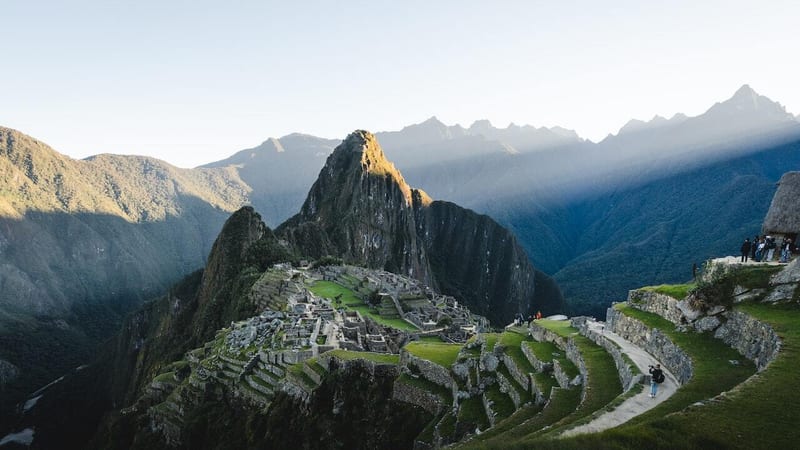
Journey into the heart of South America, where the rhythmic pulse of its vibrant cities meets the majesty of the Amazon rainforest and the timeless wonder of ancient civilizations.
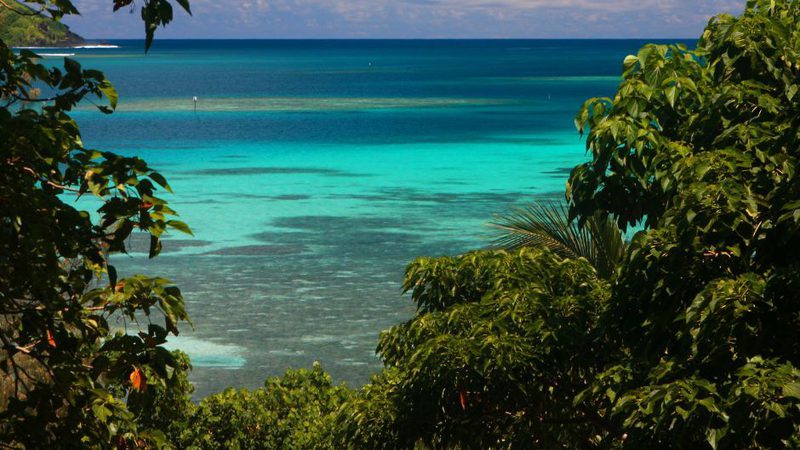
The South Pacific is a paradise of turquoise waters, white-sand beaches, and vibrant island cultures. From adventure and natural beauty to pure relaxation, each island offers its own unique charm and welcome.
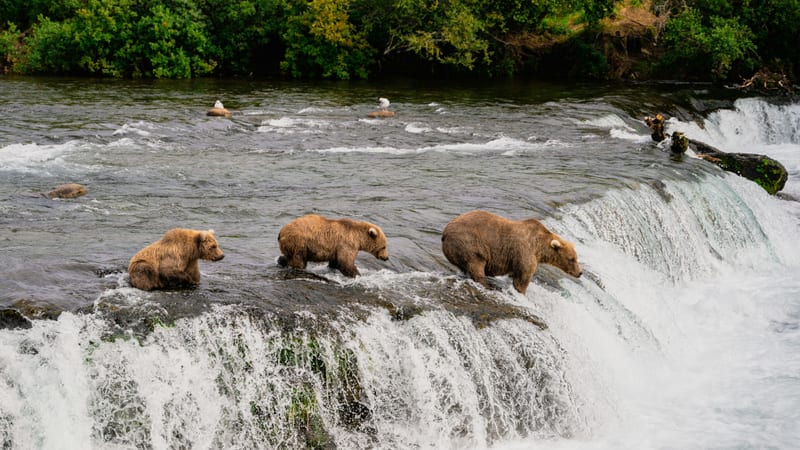
From the soaring plains of the Southwestern USA to the stunning landscapes of the expanses of Canada, visit some of the most impressive scenery in the world

If you are looking for a trip to knock iconic locations off your bucket list, check out our buck list recommendations
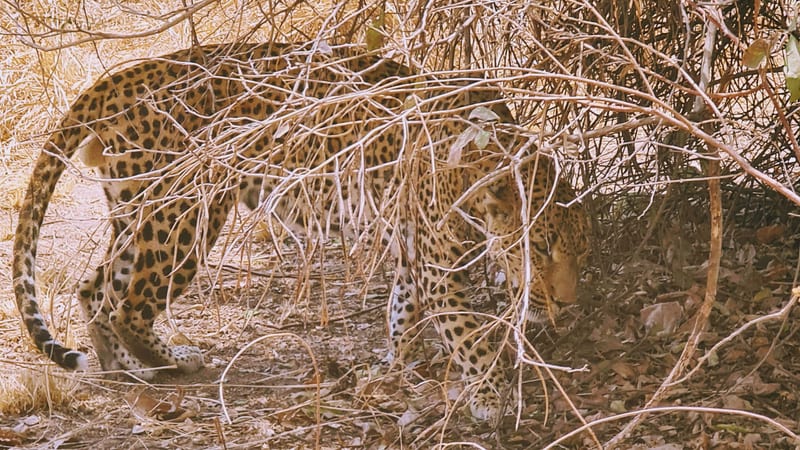
From the graceful stride of giraffes at sunrise to the echoing roars of lions beneath starlit skies, each of our safaris promises an unforgettable dance with nature.


Our family holidays are a perfect opportunity to create lasting memories, whether exploring new destinations or simply enjoying quality time together. From adventure-filled escapes to relaxing beach retreats, they offer a chance to reconnect and unwind away from daily routines.

Our luxury holidays offer the finest experiences, from exclusive resorts and private villas to tailor-made adventures with impeccable service.

For those seeking adventure beyond the usual tourist trails, our off-the-beaten-track trips take you to some of the world’s most remote and untouched destinations, where authentic cultural encounters and breathtaking landscapes await. Let us craft your unique journeys that few travellers ever experience.

For the ultimate beach escape, we offer luxury holidays to some of the world’s most stunning coastal destinations, from the white-sand shores of Antigua to the turquoise waters of Zanzibar.

For those who crave excitement and exploration, our adventure holidays take you to some of the world’s most thrilling destinations, whether trekking through Patagonia, summiting Mount Kenya, or kayaking past icebergs in Antarctica.

Interested in something a bit more focused? How about a horse-riding holiday through Argentina? Or a photography safari? Look through our Special Interest holiday selection for inspiration

Our wildlife holidays invite you to step into unique ecosystems and experience amazing animal encounters. Whether spotting majestic tigers in the jungles of India or marvelling at polar bears in the Arctic, each trip promises awe-inspiring moments steeped in the magic of nature.

Our small group tours offer the perfect balance of expert-guided exploration and personal experience, taking you to incredible destinations with like-minded travellers. Whether it's a wildlife safari in Botswana, a cultural journey through Vietnam, or a chef-led expedition through India, our carefully curated itineraries ensure an intimate, enriching, and hassle-free experience.

Sustainability travel is at the core of what we do and a guiding principle in every choice we make as a business. Let us help you make sustainable travel choices
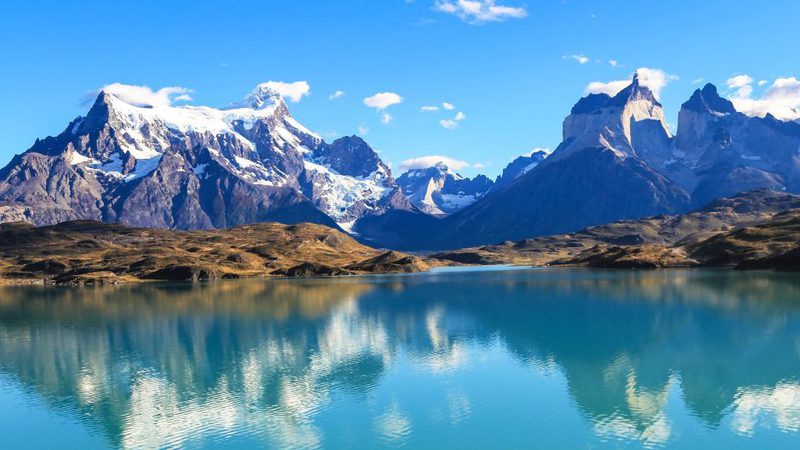
Read about what we do to make a difference

One of the most important parts of our commitment to responsible travel is protecting our clients, and it is a part that we take extremely seriously.
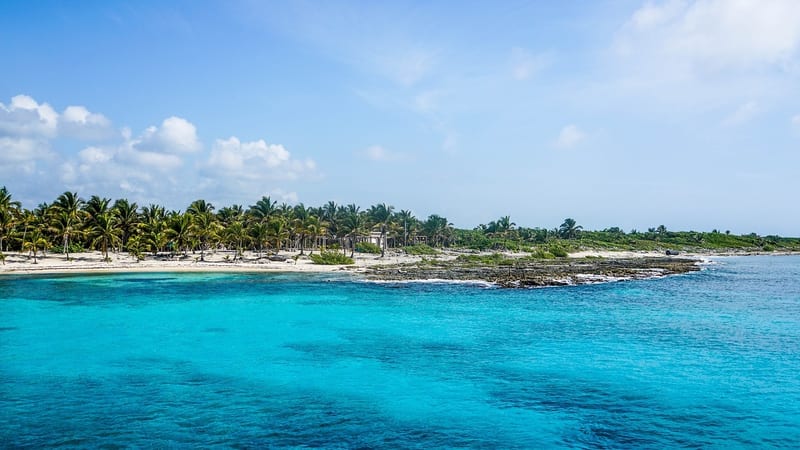
Not sure what's best for which time of year? Check out our expert-written guides

Looking for some expertise on your destination? Have a look through our selection of guides and articles written by our destination experts

Looking for more inspiration? Read from our range of hundreds of articles from our travel specialists, local guides, and personal travel tales.

Our mission is to make every holiday special. We will do this whilst specifically aiming to minimise the environmental impact of our activity and maximise our opportunity to influence others to do the same.
Two action packed weeks exploring Ethiopia's historical route
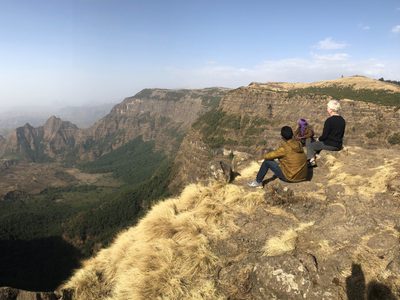
If you've read my article 'For The Eye's OF Ben Morison Only' you'll know that I've recently met my father, who is Ethiopian, for the first time. Having done that, I simply had to visit Ethiopia as quickly as I could, both to see the country - and to meet my Aunt Gennet and Uncle Molla. Flights booked, bags packed, a map of Ethiopia in my pocket, and I was off... and as my guide I took my mum who's last visit was in the mid 1970's!
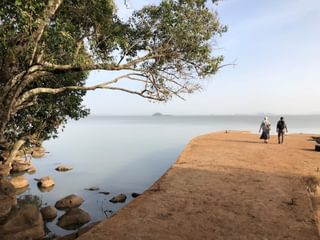
First stop and my first true experience of Ethiopia was Bahir Dar, home of Laka Tana, Ethiopias largest lake, and the source of the Blue Nile. Bahir Dar is a vibrant town, with pleasant tree-lined avenues and stunning lake views.
Most of the hotels in Bahir Dar look out over Lake Tana... and the lake itself is a pleasant inland sea containing 30 or so islands, many of which are home to spectacular churches and monasteries. The lake is best explored by boat - which we did - visiting the Ura Kidane Mehret on the Zege Peninsula and passing the Island monastery of Kibran Gebriel.
The Blue Nile falls are also a short distance away from Bahir Dar, so Mum and I took an early morning trip to see them before heading to Gondar...
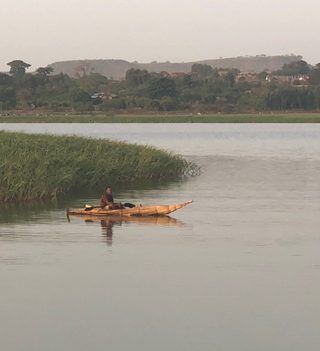
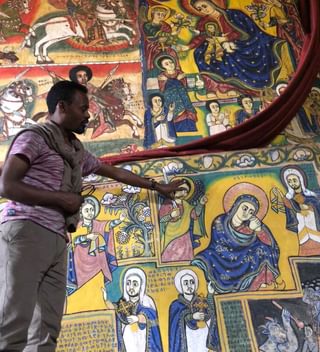
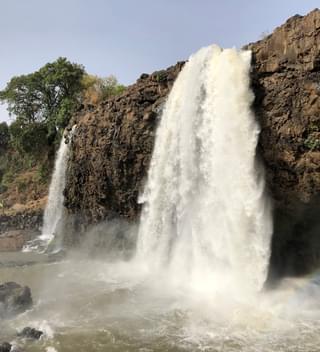
We ventured north to Gondar a city dominated by the great walled Fasil Ghebbi fortress and imperial compound... a very impressive place to walk around. It is so important to have a guide with you throughout Ethiopia... the historical sights are impressive on their own, but you really need to understand the context and their places in history to really get the most from them.
Gondar is also the gateway to what ended up being a surprise trip favourite... The Simien Mountains!

Driving north from Gondar for a couple of hours, we visited the Simien Mountains National Park, and I was quite unprepared for quite how spectacular the landscape would be. A landscape of high altitude plateaus, mountain grasses and woodland, and breathless drops - it is no surprise that the park is a UNESCO world heritage site.
I'd have been happy with just the views, but the chance to sit amongst the semi habituated population of Gelada Baboons* was another of the trip highlights. You can sit down on the grass around them and, completely impervious to your presence, they just continue going about their business... mainly eating, fighting and posing from what I saw.
(*Apparently they are actually monkeys, not baboons - don't ask me the difference - and the only primates in the world to graze!).
We stayed at Simien Mountains Lodge and visited Limalimo Lodge. Both were great... I'll be writing detailed reviews on our main site shortly.
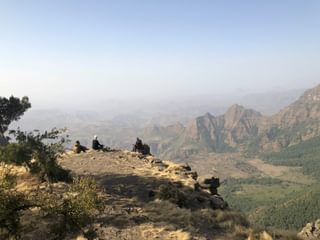
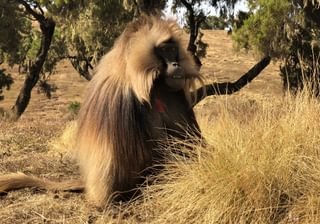
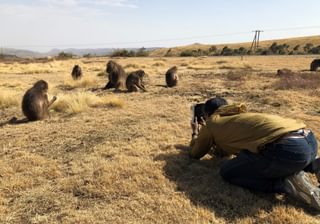
No trip to Ethiopia would be complete without visiting Lalibela to see the extra-ordinary stone churches. It was the one place I'd seen lots of photographs, so it had a big red circle on my map...
And the stone churches did not disappoint. They are remarkable. Both for their scale, and more simply for how beautiful they are. Built around the 12th Century, we visited eight of these rock hewn churches, all of which are connected by various stone staircases, and underground tunnels. Highlights were the ornate Biet Medhane Alem - a giant rectangular church and Biet Giorgis - the cross shaped church in the photo below. Both have been carved out of the surrounding stone hillside - monumental feats of engineering that must have taken many years, many stone masons and a great deal of skill.
A short distance from Lalibela we also visited Yemrehanna Christos, one of Ethiopia's best-preserved late Axumite churches... another experience that warrants its own separate article (which I'll link to from here once I've written it).


Axum was the final stop on our Ethiopia heritage tour. We had a full day to explore Axum (and if we'd had had more time we'd have had a second full day here, as there was plenty more to see).
The Axum historical sites all date from a much earlier period (around 300AD) and the best known of them are the Axum Stelae Feild. This is an open site containing a number of enormous stone oblelisks some measuring as high as 25 metres, and weighing over 150 tonnes. The Stelae were carved from a single piece of granite at a quarry site 5 kilometres from Axum and it is unknown how they were transported to their current site. But there is a lot more to Axum than just the Stelae... churches, cathedrals, Queen of Shebas Baths, monasteries & tombs... we didn't see them all... but there'll be there for the next time.
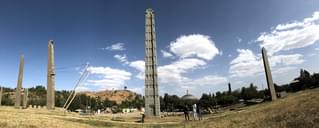
With the Ethiopia 'holiday of discovery' at an end - I sat at a restaurant in Addis with our Far and Wild ground agent and immediately started to plan two further trips. One to Danakil region of in north eastern Ethiopia, and the other to visit the Bale Mountains and the remote Omo Valley in southern Ethiopia. I'll be back!!
Wondering when to visit? Take a look at our best time to visit Ethiopia.
Looking for some more inspiration? Take a look at our best safari holidays ideas, our favourite family safaris, our big five safari guide or our top African safari honeymoon suggestions.
(*Itineraries for both those trips will shortly be on our website - along with the specific dates - and anyone wishing to join me will be most welcome.)

and start planning your tailor-made holiday

Travel Expert
This was our 2nd trip organised via Far & Wild from Australia - previously Africa and now Sri Lanka. Nia and the rest of the team were great - excellent itinerary, happy to modify the trip based on my suggestions and research, and they handled some last minute changes caused by a health issue without any problems at all. They were very quick to reply to all messages - and the trip went really smoothly. If you want an up-market holiday, this is a great organisation to organise that sort of trip!
What can I say….my son and myself had the most wonderful time in Kenya thanks to the first-class itinerary that Ben and Louise put together for us. We spoke with Ben many times to ensure he ‘got it right’. This was our 2nd visit to Kenya, and it certainly lived up to our expectations and memories. Nothing was too much trouble for all the staff; we cannot have been looked after any better. I would highly recommend Far and Wild; they are so knowledgeable and have personally visited the lodges and areas. We are already planning another visit, and we cannot wait.
Thank you to Nia and Far & Wild. My wife and I wanted to go to Vietnam and capture a real taste of the country from top to bottom but didn't have a clue where to start. We weren’t even sure if it was possible. Through speaking to Nia, sharing ideas and asking questions we were able to book what looked to be an extremely exciting trip - we could not wait to go. The reality of the trip more than matched our expectations. We had unforgettable experiences that we would never have been able to organise ourselves. The true value in this trip was that someone who knew what they were doing could give us the experience we truly craved. Well done Nia, it was a holiday we will never forget and we can’t wait for the next one. Thank you!
Had an absolutely amazing 3 weeks in Chile and Argentina! We were a group of 8 friends - 4 couples. The vans used for our private excursions were very good and spacious. All the ground arrangements were as planned … the guides were very good - their English and knowledge was amazing. They made sure we had a good time. The picnic lunches were served in great locations with fabulous views and setup with tables and table cloths! Highly recommend Far & Wild! Looking to book another trip with them next year!
Seamlessly organised! Brilliant suggestions of where to go which really gave us a 360 view of Kenya and hit our families need for adventure and mine for a bit of luxury.
Alistair took time to understand what we were after and came up with an unforgettable Kenyan safari and beach holiday which we will all remember for a very long time. Real memory making trip with our 10 and 12 year old boys. Exactly what we hoped for and more!
Otti organised a superb holiday to Kenya and Seychelles for my husband and I and our 2 adult daughters. It was our first safari and we only had a vague idea about where to start. Otti made the process so simple for us, suggesting an itinerary which she tweaked following discussions about the camps and hotels, and was really quick responding to my many queries; she was friendly, helpful and gave me complete confidence we were in excellent hands throughout. Far and Wild clearly have knowledge about the places they are recommending and work as team to provide the best service - definitely a 10 out of 10 for customer service and organising an amazing holiday for us.
We can't thank the Far and Wild team enough for the most incredible trip we just had in Kenya. Otti really took into account what we were after and delivered an experience that exceeded all expectations. It was the trip of a lifetime! We had the most beautiful and unique time while on safari at the Instinct of the Mara. We really wanted to visit a camp that took ethical and sustainable practices seriously without compromising on the experience... and wow, it was truly wonderful and special! We'll definitely be returning. Our time at Diani beach was also lovely and very relaxing. Every step of the trip was seamless and we didn't have to worry about a thing. We had 4 domestic flights and a handful of car rides to take and everything was extremely organized and ran smoothly. We can't wait to book our next big trip!! Very grateful.
Ben and Tamara at Far & Wild were exceptional in every respect. They offered thoughtful advice, excellent recommendations, and meticulous planning, weaving together their personal connections to help our family transform a collection of ideas into a magnificent six-week adventure. Every detail was handled with care - no transaction overlooked - which is all the more impressive given the complexity of moving three people across four regions of the country by every mode of transport imaginable. Their expertise gave us complete peace of mind and allowed us to simply enjoy the journey. I have already recommended Far & Wild to friends and would not hesitate to do so again.
So great to be able to leave the details to the professionals at Far & Wild. Our two-week tour of Buenos Aires and southern Uruguay was pitch-perfect to our requests and goals. Amanda understood clearly what we were after, and crafted an idyllic itinerary with our style of hotels, guided tours, and transfers. Complementing Far & Wild's first-person knowledge of the territory were the excellent resources "on the ground" in Argentina and Uruguay to handle last-minute changes and requests. We've found our travel partner!
I have just returned from the most amazing trip to Tanzania, booked with Far & Wild. Everything went so smoothly from the first time I spoke with them. The planning was great, the itinerary was perfect for us, and the lodges were amazing. We spent 10 nights with an amazing guide, travelling through Northern Tanzania and even got to see the migration, which was a lifetime ambition of mine. This wasn't our first safari, so we were nervous as to how it would compare, but it was spot on. I will certainly be using them again to book our next trip....we're thinking of a relaxing beach stay next time to get over the excitement of safari!
It was a dreamy holiday on the Kenyan Coast - Far and Wild, their efficiency and professionalism allowed us to relax and be the happiest family alive !! We cannot fault them, their care and understanding of what we wanted from a holiday ensured we had the most memorable trip. We will be booking with them again for sure!
Just back from another amazing F&W organised trip to Namibia with the family (8 adults). Having been there before, Alistair tailored our trip to include our favourite locations and added a new one for us, which we loved.The quality of accommodation and guiding, activities, food and drinks was exceptional throughout. It was good value for the level of luxury we had.
We had a wonderful trip to São Tomé and Príncipe - a small island nation in the Gulf of Guinea with paradise (almost empty) beaches and jungle forest. It was all well organised by Far and Wild and we stayed at a great combination of different types of resorts/hotels. We really recommend this for those who want to experience a pristine destination with few other tourists and friendly and welcoming people. The islands also feel very safe. At Principe, there are no dangerous animals, snakes or whatever, and it was great to be able to hike in the jungle without being very conscious of where to put your hands and feet. Go before everyone else does!
Back home again, basking in the joys of a superb safari. Every aspect you arranged for us, including linking up with Mack Air and Wild Horizons locally to transport us. The choice of camps was ideally situated, comfortable, in good surroundings, and with excellent wildlife on the doorstep and throughout the wider country. The service staff in each looked after us very well, catering was excellent, and the game guides were professional, knowledgeable and helpful. You made us happy, and we recommend you to similar safari enthusiasts with confidence.
Far and Wild went above and beyond to make sure my trip to Zambia was special. I would definitely recommend them and their services to anyone wanting to travel to Africa.
Lovely holiday at the amazing Almanara on Galu beach, a beach like no other. Far and Wild excelled themselves from beginning to end of our holiday in beautiful Kenya.... What a country!,
Wow! These guys are amazing. Can’t recommend them highly enough. Friendly AND efficient! Sorted out our trip (last minute and lots of different family member needs, sorry!) in record time and everything worked like clockwork. Trip of a lifetime to the Masai Mara. Will be back (and use F&W again!)!
Get travel tips directly to your inbox every week
Give us a call on 0203 111 1315 or fill in the form below and we’ll be in touch.
